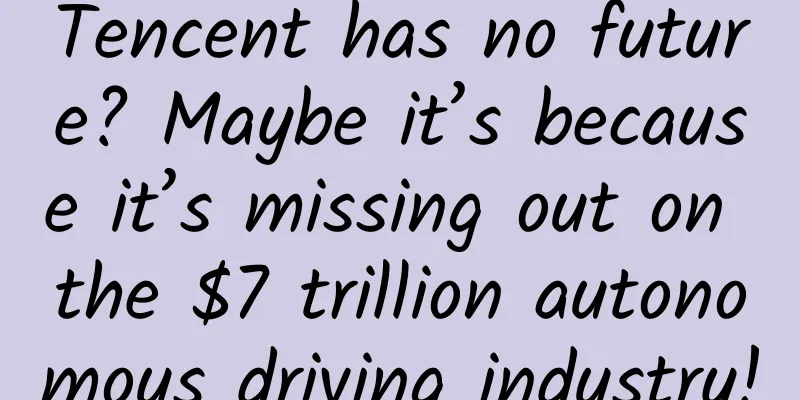Cook's Views on the Reformation

|
The Reformation movement, which began in Europe in the 16th century, laid the foundation for Protestantism. It also disintegrated the political and religious system dominated by the Catholic Church after the Roman Empire promulgated Christianity as the state religion, and paved the way for Western countries to move away from the feudal system under Christian rule. Since Jobs' death, every time Apple launches a new product, the words "Apple has no innovation" are often repeated. Observers always expect a genius, epoch-making product to appear, while Cook always caters to the market with a businessman's attitude. There is an unavoidable gap between the two. The same was true for Apple's fall conference. The circle of friends was already full of contempt, and almost everyone was caught up in complaining about Cook and missing Jobs. People always miss the Apple of the Steve Jobs era. But rather than saying "Apple has no innovation", it is better to say that the idea of "Apple has no innovation" is just a religious worship of Jobs. Apple in the Tim Cook era has always been innovative, but the way of innovation is different from that of Jobs. One is open and listening, while the other is dictatorial and decisive. Cook is bringing about a religious reformation. Apple is bringing about a revolution in modern technological society. The Jesus of the tech world is dead Cook once described Jobs' legacy: Jobs believed that most people lived in small closets. They thought they could not have a significant impact on things and change them. Jobs never accepted this philosophy. As a dictator, Jobs disdained market rules, disdained charity, monopolized public attention, opposed dividends and buybacks, and avoided large-scale mergers and acquisitions. All of these methods went against consumers and forced decisions on everyone. Jobs was a genius, but he was also a tyrant. It is said that Jobs dressed up as Jesus at Apple Halloween in the early years. Subconsciously, Jobs believed that he was Jesus in the technology world who could improve people's lives. As a person who is still admired and discussed by the world nearly three years after his death. Jobs has indeed become the "Jesus" of the technology world. Whether from the perspective of business, technology, industrial design, humanities, or art, Jobs has set a set of benchmarks and formulated a set of rules. However, after his death, the huge business seems to be powerless and no one is willing to continue the genius of development. As the first new product category led by the Cook era, Apple Watch was a disastrous failure compared to the success of the iPhone. While people were disappointed, they always reserved a place for Steve Jobs in their hearts - if it was Steve Jobs, he would definitely do better, right? His legacy has been inherited by countless people. In China alone, entrepreneurs such as Lei Jun, Jia Yueting, Luo Yonghao, and Huang Zhang have expressed their admiration for the Jobs era countless times, and often regard themselves as Jobs' successors, believing that Apple has no more innovation after Jobs' death. They have taken over the mantle of that genius and started their own business performances. The post-discovery era Some people ask, was it the times that determined Jobs or was it Jobs who changed the times? However, the era in which Jobs lived was the "barbaric era" of mobile Internet. In the tide of the Internet and mobile Internet, too many user needs needed to be solved, and pioneers were everywhere. Jobs was naturally made a hero in the midst of chaos. During the Jobs era, Apple was innovating. Such innovations were groundbreaking and invincible because they were born in a barbaric era, bringing people extremely shocking sensory stimulation. In a barbaric era, what was needed was to grab land and make rules. As a pioneer and legislator, Jobs decided the world and naturally became a legend. To use a more vivid analogy, around 1500 AD, pioneers such as Columbus and Magellan discovered the New World. This sense of novelty, excitement, and adventure made the world eager to try. But after the end of the Age of Discovery, although there was no New World, the world ushered in an era of economic integration and industrial innovation. This era also brought innovation, but the dimension of innovation was different. Today, as the mobile Internet matures, market rules have long been determined, industry boundaries are foreseeable, and any specific product form innovation seems insignificant. Innovation at this time is more about ecological integration. The mobile Internet industry is in the process of industrial upgrading. The ecosystem and user experience need to be continuously improved. This is exactly what Apple, led by Cook, is doing. Apple's Reform in the Tim Cook Era Although Apple's innovations during the Cook era are not as radical as those during the Jobs era, we see a more open and friendly Apple. This may be Cook's religious reform. Last year, The Economist pointed out that Apple's current strategy is very different from that of Steve Jobs, and that Apple will rely more on the "ecosystem" rather than hardware facilities in the future. Apple pays more attention to the collection of software, services, data and a large number of partners. Although Microsoft almost squeezed out Apple's living space in the 1980s and 1990s, Jobs still said, "Microsoft has no taste. It's not a small lack of taste, but a big lack of taste. Their products are not second-rate, but third-rate. There is nothing original in Microsoft's products, and there is no cultural taste injected into them." Jobs's paranoia has turned into cooperation with Cook. Apple not only held a new product launch yesterday, but also invited Microsoft's vice president to come to the stage. Some people say that Microsoft and Apple's desktop operating systems will eventually fight, but what we see is a handshake and peace between the two sides. Microsoft Office fully supports iPad Pro, and customizes stylus and keyboard for iPad Pro. The two enemies finally become friends. Openness is only one aspect. At this conference, we saw an Apple with a greater vision and pattern in the Cook era. A more powerful iPhone, a better iPad, and a more colorful Apple Watch are merely product improvements. From an ecological perspective, the new Apple TV will be equipped with the tvOS system based on the iOS system, and will also have the App Store function, allowing future applications to run simultaneously on the three platforms of mobile phones, tablets, and TVs. iOS 9 brings many detailed improvements, such as the addition of device management tags in the iCloud cloud service, the addition of social network friend search in Spotlight search, the addition of common contact management in the multitasking management interface, window multitasking, and new wallpaper management functions. The functions of iOS 9 will also become more user-friendly and easier to use. If we talk about genius innovations in the Cook era, they actually exist. Touch ID, which is easy to use and widely used by Android phones, brings a more powerful experience. Apple HealthKit and HomeKIT lead the trend of the times. This kind of ecological innovation may take more than a decade to gradually penetrate into every aspect of people's lives. Paying more attention to the Chinese market and user experience, Jobs wanted to change the world, while Cook launched products with more powerful functions based on continuous upgrades and iterations, and created an ecosystem based on products to shape a smart lifestyle with Apple mobile phones as the core. This may be the most suitable innovation for this era. postscript: Italian novelist Umberto Eco once compared Apple’s platform to Catholicism and Microsoft to Protestantism. “The Mac is proof of the faith that Apple must uphold at every step,” he wrote. Microsoft, by contrast, “allows free interpretation of the Bible… and assumes that not all people can be saved.” Apple, under Cook’s leadership, may be on the cusp of the Reformation. The top-down religious reform movement that began in Europe in the 16th century laid the foundation for Protestantism. It also dismantled the political and religious system dominated by the Catholic Church after the Roman Empire promulgated Christianity as the state religion, laying the foundation for the subsequent transition of Western countries from a feudal society under Christian rule to a diversified modern society. The closed and authoritarian era of Steve Jobs' church has ended. This is what Apple is doing in the Cook era. Apple in the Cook era is laying the foundation for the future technological society. |
<<: The beginning and end of whether the flow is cleared or not
>>: Survivorship bias: A million ways to die in the Chinese gaming community
Recommend
How much does it cost to join the Wuhai food delivery app? What is the price for joining the Wuhai food delivery app?
Is it easy to join the Wuhai food delivery mini p...
Why do well-known brands have more traditional advertising?
In life, have you noticed that the more famous a ...
The sun is so strong, it is the most "stupid" to only apply sunscreen! Wearing a mask is better than it
Have to say On the subject of sun protection Whet...
Broken promise or innovation? AutoNavi opens LBS technology to support O2O business
In the early days when Yu Yongfu officially took ...
iPhone can finally modify App icons at will
I found that many of our friends have started to ...
Seed User Operation Methodology
The author shares his thoughts and experiences on...
After seeing this new generation of Kia K3, would you still buy Sylphy?
At this year's North American International A...
Can Samsung TV, which is determined not to produce OLED, still gain a foothold in the future TV market?
If the industry's most important mobile phone...
Is it so easy to make your own wine? Be careful, beware of methanol poisoning...
Grape wine in luminous cup, a glass of homemade w...
WeChat 7.0.9 beta update: Public account name is displayed when forwarding text and picture messages
On November 22, WeChat 7.0.9 beta version was upd...
Spring is the right time to lose weight, but how can you effectively reduce excess fat in your body?
With the end of winter, many people are planning ...
How did “Her Community” win tens of millions of users in four months?
Anti-counterfeiting startups have now become an e...
3 drainage principles to help you attract new customers efficiently
User growth is almost the ultimate proposition of...









